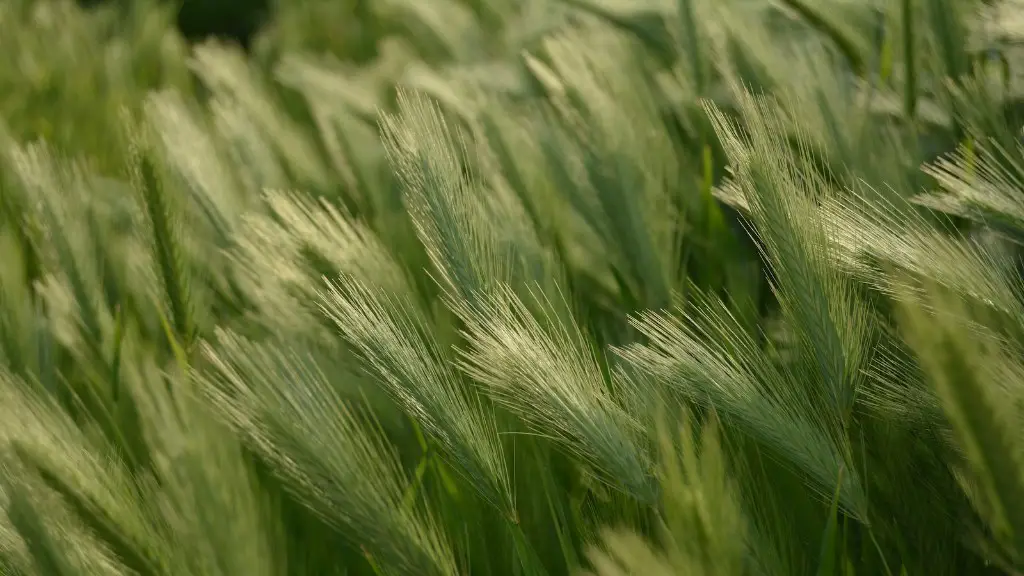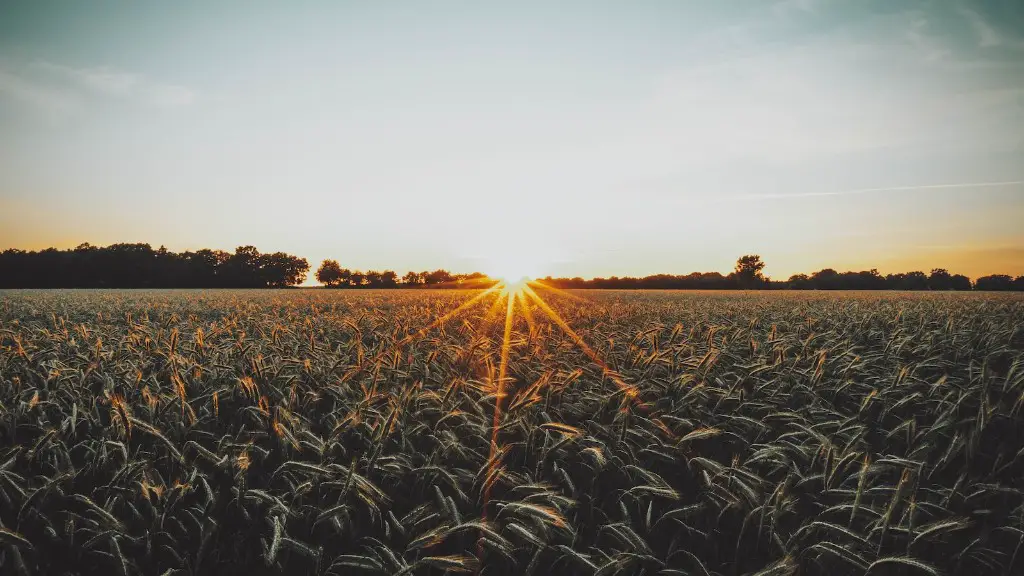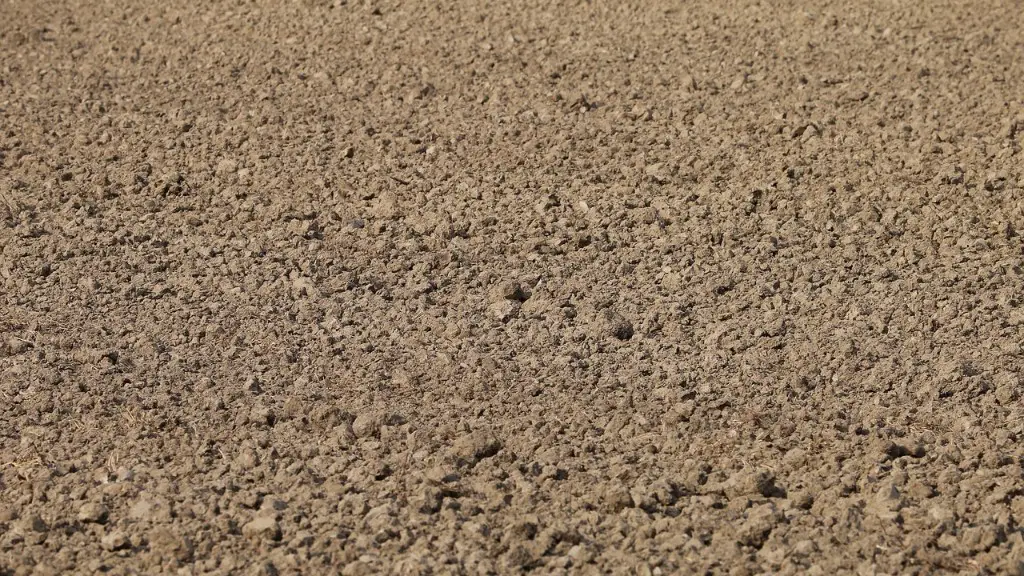No matter what subfield of agriculture you are interested in, acquiring a PhD is a difficult but immensely rewarding process. Here are a few steps to take if you are interested in becoming a doctoral candidate in agriculture: first, consult with your advisor to develop a research proposal that articulates your specific goals for the PhD process. Once you have a advisor on board, begin to take classes and complete any preliminary exams required by your program. During this time, you will also be working on your dissertation, which is a novel piece of research that contributes new knowledge to your field of study. After successfully defending your dissertation, you will officially earn your PhD and be able to pursue a career in academia or other related fields.
There is no one-size-fits-all answer to this question, as the best way to earn a PhD in agriculture may vary depending on individual factors such as educational background, research interests, and professional goals. However, some tips on how to pursue a PhD in agriculture may include completing undergraduate and Masters level coursework in agricultural sciences, participating in research projects during one’s studies, and networking with professionals in the field. It is also important to consult with faculty members at potential PhD programs to learn more about their specific requirements and application process.
What can I do with a PhD in agriculture?
There are many different career paths that you can take with a degree in education. You may choose to work as a college or university professor, or you may pursue a career in research. Both of these career paths involve the analysis and interpretation of trends in your chosen specialization.
A select group of students complete their PhDs in two years, while a tiny number of elite students can get it done in 12 months. It’s hard to overstate how rare and impressive this is, but it is always a possibility. The key to a fast-track PhD is building up a strong academic CV before you even start.
Can you get a PhD in 1 years
There are a few universities that offer PhD programs that can be completed in one year, though many programs referred to as “1-year PhDs” actually take a little longer to complete. There are several doctorates that can be completed within a year or two, but not all disciplines.
One of the fastest ways to earn a doctorate is by matriculating into a program with graduate-level credits and having previous academic or research experience. Students can also find programs that offer an accelerated option.
Which PhD has highest salary?
There are many different doctorate degree jobs that offer high salaries. Some of the most popular and highest paying jobs include: PhD in Statistics, PhD in Biomedical Engineering, PhD in Physics, PhD in Engineering, PhD in Physical Chemistry, PhD in Pharmacology, PhD in Electrical Engineering, and PhD in Computer Science. These jobs offer great salaries and benefits, and are some of the most sought after jobs in the world. If you are looking for a high paying job, then you should definitely consider one of these doctorate degree jobs.
The average placement package that can be expected by fresh graduates of PhD Agronomy Courses usually ranges between INR 2,00,000 and INR 10,00,000. However, this varies depending on the college/university you have completed your degree from and your research experience. Generally, those with more research experience tend to get better offers.
Who is the youngest person with a PhD?
Karl Witte was born in 1800 and was a German child prodigy. He received his PhD from the University of Giessen in 1814 at the age of 13 years 283 days, making him the youngest person to be awarded a PhD. Witte was a remarkable child, and his accomplishments are a testimony to his intelligence and hard work.
There are plenty of reputable, regionally accredited institutions taking their doctorates online. While the program may require less face-time or physical presence on a campus, accredited programs are by no means a shortcut to earn your degree.
Is 60 too old to get a PhD
There are no age caps for eligibility for PhD programs, and most universities welcome qualified applicants of all ages who will benefit from the program’s academic training mission.
A number of universities offer direct entry to PhD programs from undergraduate or bachelor degree studies. In some cases, specific schools or programs may prefer that applicants hold a master’s degree. However, it is possible to obtain a PhD without first completing a master’s degree.
Which PhD is most in demand?
There are many different PhD programs available, each with its own unique benefits. Some of the top programs include physical therapy, education, administration, chemistry, and more. Political science, for example, allows you to work in one of the highest paying PhD jobs, which makes this one of the best options. PhDs involving technology are also popular.
A PhD is the highest level of university study that you can undertake. In the United States, you can generally go directly to a PhD with only a bachelor’s degree, as a master’s program is included as part of the doctoral program. Elsewhere, you generally need to graduate from a research-intensive master’s degree before continuing to the PhD.
What GPA do you need for PhD
A high GPA is important for students who want to be competitive for Ph D programs. It is recommended that students have at least a 30 cumulative GPA and around a 35 discipline-specific GPA. These numbers will vary depending on the program and the school, but having a high GPA is essential for students who want to be competitive for Ph D programs.
It’s normal to feel disappointed after working so hard on your PhD application only to be rejected. Remember that rejection is a part of the process and that you shouldn’t take it personally. There are many reasons why applications are rejected, so don’t give up hope. Keep trying and you’ll eventually get accepted.
Is PhD very difficult?
It’s no secret that starting a PhD is an incredibly daunting task. Normally, it takes at least 3 years to complete the program. And during that time, there are some challenges that you are almost certainly going to have to face.
Below, we look at some of the biggest (and most common) problems that PhD students encounter:
1. Time management
One of the biggest challenges for PhD students is learning how to manage their time effectively. With so much to do in such a limited time, it can be easy to get overwhelmed and start falling behind.
2. Motivation
Another common challenge is staying motivated throughout the program. With the PhD taking so long to complete, it can be easy to lose sight of your goals and why you’re doing this in the first place.
3.writer’s block
Writer’s block is a very real problem for many PhD students. Trying to come up with new and innovative ideas can be incredibly difficult, and it can be easy to get stuck.
4. Financial pressures
Many PhD students are also under a lot of financial pressure. Funding can be a big issue, and it can be difficult to make ends meet while you’re studying.
5
There is no one perfect age to get a PhD and people often finish at different stages in their lives. The earlier you finish your PhD, the more of a life and career you’ll have with it, but that doesn’t mean there’s an optimal age. Every person’s situation is different and so there’s no easy answer. Ultimately, the best age to get a PhD is whenever you are able to complete it.
Which PhD is most difficult
There are many different opinions out there about which PhD degrees are the hardest to earn. While some people may argue that all PhD degrees are equally difficult, others may assert that certain degrees require more work or are more challenging than others. In any case, there are a few PhD degrees that are generally considered to be among the most difficult to earn.
Some of the hardest PhD degrees to earn include degrees in mathematics, medical doctorates, and physics. These degrees often require extremely difficult coursework, long hours of study, and intense research. Earning one of these degrees can be a daunting task, but the rewards can be well worth it.
There is no one-size-fits-all answer to the question of whether or not a PhD is worth it. It depends on your individual circumstances, field of study, and career goals. However, overall, a PhD can improve your finances, provide you with a clear path to success, and give you a world-class education.
Conclusion
It depends on what country you are in, but typically a PhD in Agriculture requires 4-5 years of full time study, including coursework and a research thesis. To be admitted to a PhD program, you usually need to have a Master’s degree in a related field.
A PhD in Agriculture can be obtained through online and campus-based programs. The coursework for a PhD in Agriculture includes topics such as animal husbandry, crop science, soil science, and agricultural economics. To obtain a PhD in Agriculture, students must first complete a bachelor’s degree in agricultural sciences or a related field. After completing a bachelor’s degree, students must then complete a PhD program, which typically takes four to five years to complete.





